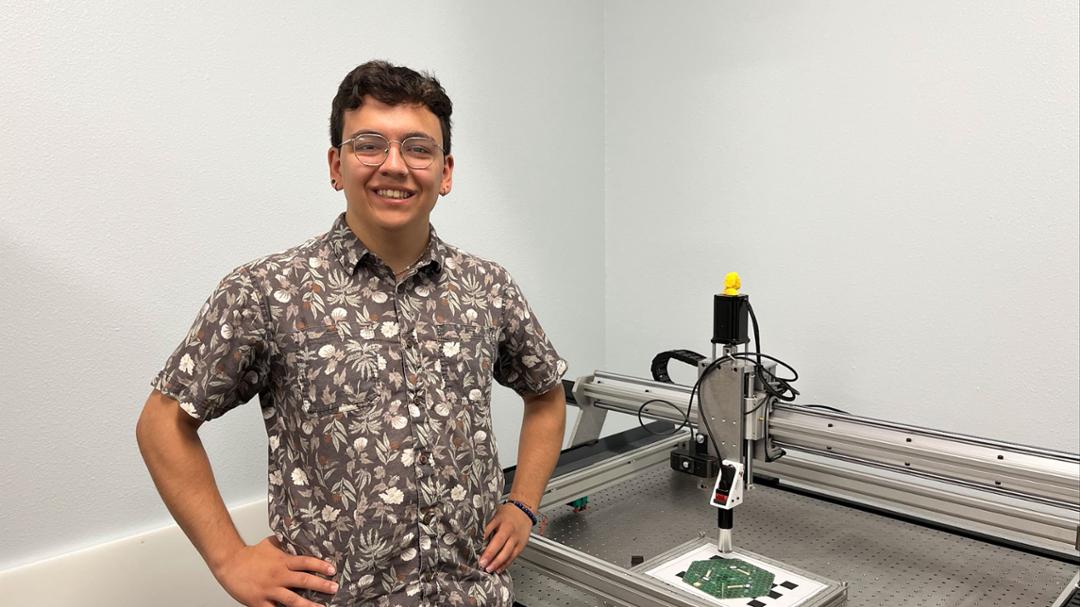The funds will help the High-Energy Physics group train future particle physicists.
Texas Tech University has received a grant from the U.S. Department of Energy that will provide training and mentorship for the next generation of scientists.
The Department of Physics and Astronomy has been awarded just more than a half-million dollars of funding for the next three years to create more structure and organization around informal processes largely already in place.
“What we’re doing with this grant is setting up research and training for undergraduates that will get them involved in high-energy physics research,” said Andrew Whitbeck, assistant professor in the department. “From our perspective, it’s giving them the tools to be successful as physicists or in whatever they decide to do.”
The Texas Tech proposal came from the High Energy Physics (HEP) group led by Whitbeck, the principal investigator, and including department chair Sung-Won Lee, professor and associate dean Nural Akchurin, associate professor Igor Volobouev, and research professor Shuichi Kunori.

“This program aims to support long-term undergraduate research opportunities at Texas Tech through mentorship from graduate students and faculty and community engagement,” Lee said. “The HEP group is working on a number of exciting areas of research that will be critical to next-generation HEP experiments.”
In simple terms, high-energy physics is a discipline that includes cataloging fundamental particles that comprise matter and the interactions between them.
“What we do is called collider physics,” Whitbeck said. “It’s exactly what it sounds like, colliding things together. It is like learning how a car works by smashing cars together.”
The HEP group’s areas of research include artificial intelligence and robotics for detector construction, novel detector components, advanced data analysis techniques using machine learning, and using radiation detectors for archaeology, geology, homeland security and other fields. The first three students started in the program this summer, and the expectation is the number of undergrads involved will steadily grow during the lifespan of the grant.
“A lot of what we are doing is trying to build this structured mentoring program to make sure they have the technical support, the moral support and the professional support they need,” Whitbeck said. “It is also fair to say that it is meant to bring new blood into the discipline.
“In the proposal we talked about being a Hispanic Serving Institution and the demographics of Lubbock and West Texas. We have a very diverse community here. We see this as an opportunity not just for the Texas Tech community, but for the Lubbock community at large.”
Texas Tech’s strong research reputation was one reason its proposal was favorably received.
“We have a strong research group,” Whitbeck said. “That was a big part of it, and we also have opportunities that are unique in that we’re in a very interesting part of the country that is remote, and we play a huge role in a very large region. I think we did a good job of selling those points.”
The new program will eventually connect with existing initiatives such as the South Plains Regional Science and Engineering Fair and the QuarkNet program funded by the National Science Foundation.
“For years these have been led by the Department of Physics and Astronomy and the Texas Tech HEP group, respectively,” Lee said, “extending to the participation of local high school students and science teachers. These efforts will be additional outstanding examples of linking state-of-the-art research conducted at the university to education and community engagement.”

